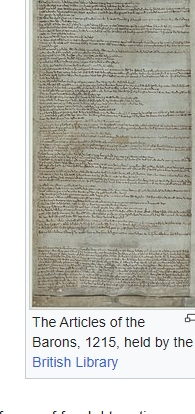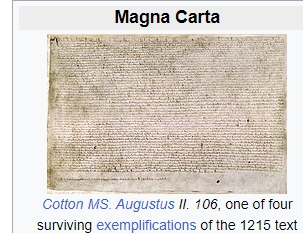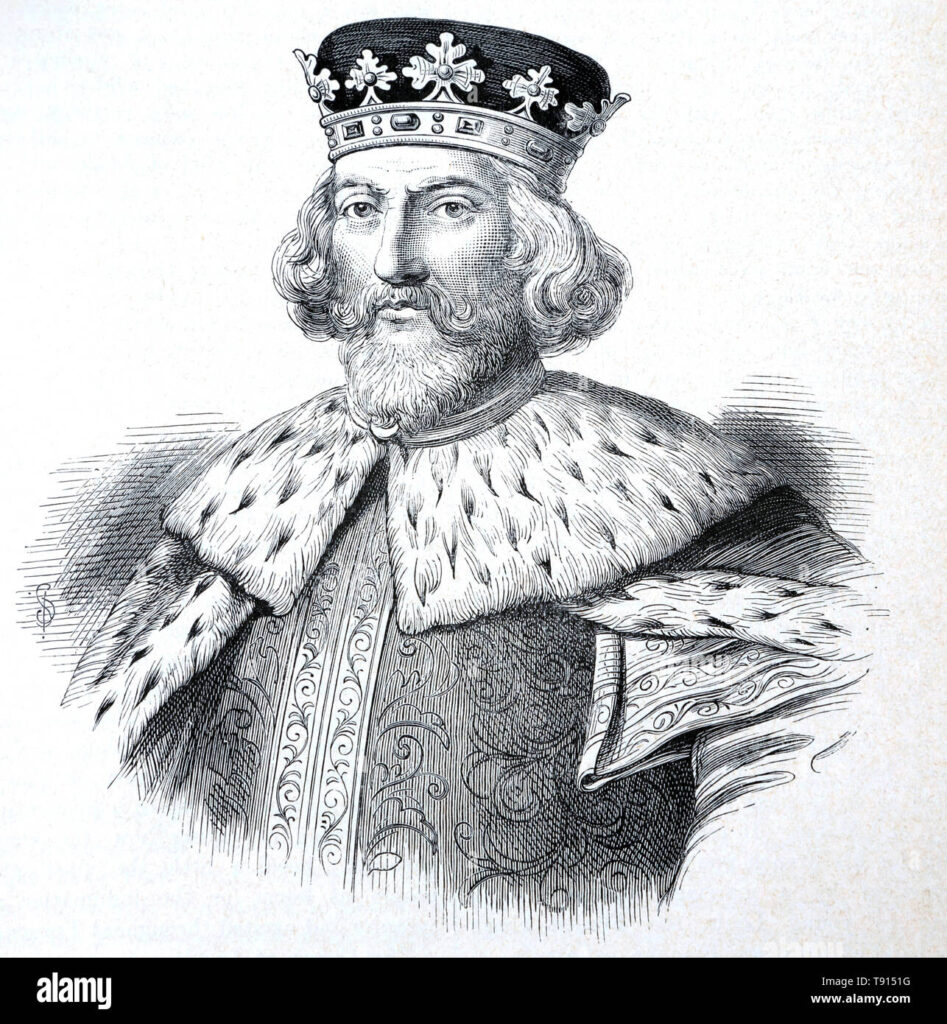Magna Carta 1215
Magna Carta, which means ‘The Great Charter’, is one of the most important documents in history as it established the principle that everyone is subject to the law, even the king, and guarantees the Right of Individuals, the Right to Justice and the Right to Fair Trial

∆ Why was Magna Carta Created?
Magna Carta was sealed by King John England on 15 June 1215 at Runnymede, near Windsor. The document was drawn up after his barons rebelled and forced him to agree to limitations on his power, because he had demanded heavy taxes to fund his unsuccessful wars in France.
In 1215, King John agreed to the terms of the Magna Carta following the uprising of a group of rebel barons in England.
The barons captured London in May 1215, which forced King John’s hand and caused him to finally negotiate with the group, and the Magna Carta was created as a peace treaty between the king and rebels.

∆ What does Magna Carta say?
The whole document is written in Latin, and the original Magna Carta had 63 clauses. Today, only 3 of these clauses remain on the statute books;
- Give liberties to the State and Rights to the English Church.
- Liberties and customs of London and other towns.
- All people have the Right to Justice and Fair Trial.
Later the king dislikes the terms and conditions of the signed peace treaty between the king and rebels in 1215. Also, the church was against that treaty.

~* Second Version of Magna Carta
The second version of Magna Carta was issued by Henry III in 1225, which was about tax, and in return of that tax the king will provide them security.
∆ Significance of 2nd Version of Magna Carta
- It was 1st step towards establishing Parliamentary Democracy.
- American bill of Rights from Magna, 1791.
- Human Rights declaration from Magna Carta, 1948.
- Fundamental Rights ( 1973 Constitution of Pakistan)
– Article 10A Right to Fair Trial
– Article 25 Equality of citizens.

∆ Main Features of Magna Carta
- Limited the powers of the king and ended the idea of rule by divine right.
- Rule of Law( all rulers must also obey the law).
- Idea of Rights and liberties that even a monarch cannot violate.
- Habeas Corpus ( entitled to appear before court in reasonable time).
- No restrictions on freedom without reason.
- Legal rights could not be changed without the consent of the people.

Source: Wikipedia
Written By: – Rajat Ranjan
